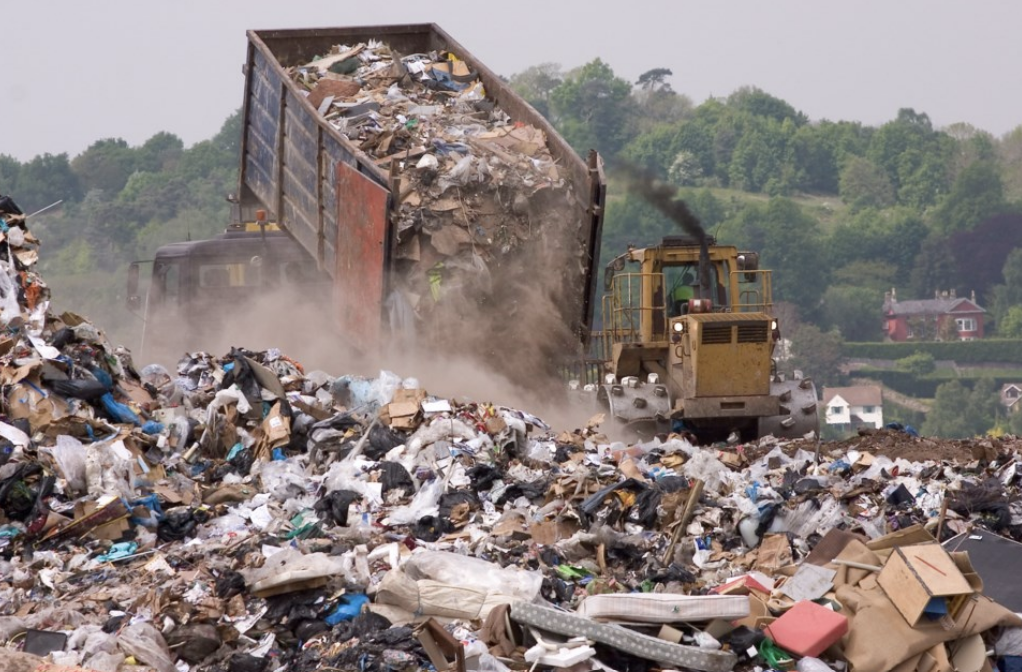Collingwood landfill will close this year: County official

Stock image
From CollingwoodToday, April 27, 2023
By Jessica Owen
The countdown is on for the Collingwood landfill, as county officials expect it will close at the end of 2023.
According to estimates from the County of Simcoe, the Collingwood landfill had 30,678 cubic metres of capacity remaining at the beginning of 2023, with the landfill expected to close at the end of the year. The site will still be used by the county as a waste transfer station once the landfill portion closes.
However, the closures of the other two remaining landfill sites that house Simcoe County’s garbage are also on the horizon, leaving the county with few options outside of paying to transport waste outside of its borders.
“The population of the county is growing. With an increased population comes an increase in waste and disposal needs,” Rob McCullough, director of solid waste management with the county told CollingwoodToday this week.
Based on forecasted tonnages and population growth, the last two landfill sites in Simcoe County are slated to close by 2027. The Nottawasaga landfill is currently sitting at 29,505 cubic metres of capacity remaining, and is expected to reach capacity in 2025, while the Oro-Medonte landfill has 227,206 cubic metres of capacity remaining and will reach capacity in 2027.
“Then, we’ll be into garbage export as we go forward,” said McCullough. “We are concerned about the lack of in-province waste disposal options that are available.”
The process for closing a landfill includes adding about one metre of clay on top of the landfill, then adding topsoil and grass. The Collingwood landfill site specifically is used for the dumping of “dry waste,” which includes items such as couches or chairs collected via drop-off as opposed to curbside. Materials are collected from all eight county-run landfill sites and are hauled to Collingwood. McCullough says for the past eight to 10 years, the county has shredded that garbage to maintain the landfill for as long as possible before closure was necessary.
In 2022, County of Simcoe curbside waste collection crews picked up approximately 104,425 tonnes of waste material (garbage, organics, recyclables, and seasonal collections).
In Simcoe County, garbage marked for export currently goes primarily to Walker landfill in Niagara. Exported recycling is processed at Green for Life in Toronto, and organics are sent to BioEn in Elmira.
According to 2022 County of Simcoe budget estimates, the county paid about $12.4 million last year for the export, processing, and disposal of wastes. That figure does not include revenue gained through the provincial recycling program as it varies annually.
In January 2021, a report commissioned by the Ontario Waste Management Association found that based on the current landfill capacity depletion rate, Ontario’s available landfill capacity is expected to be exhausted by 2032.
Currently, there is a clock on their website that calculates how long it will be before Ontario’s landfills are full. The clock sits at 3,901 days, or 10.6 years.
“We know that to site and construct a new landfill is, at a minimum, a 10-year project,” said McCullough. “No one is following through with it because of the uncertain outcomes. There are pretty significant hurdles that are in place for developing new landfills.”
“Many municipalities are concerned about the investments that are required versus those uncertain outcomes,” he said.
Looking forward, McCullough says the county is working to push forward on projects that can help the situation locally, such as the progression of the county’s Environmental Resource Recovery Centre project, which is a proposed materials management and organics processing facility expected to be built in Springwater Township.
“We’re continuing to move forward with those projects to manage the waste as we can within our borders,” said McCullough, also pointing to the province transitioning to producer responsibility for recycling by 2026, which he says will also make a difference.
“When the whole province transitions, we probably will no longer be in the recycling business at all,” he said. “We’re not quite sure yet what the industry will do. It could be a whole new world.”
Read the article here









Leave a Reply